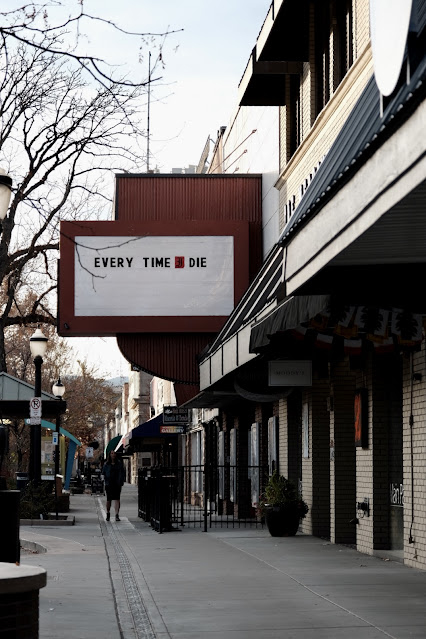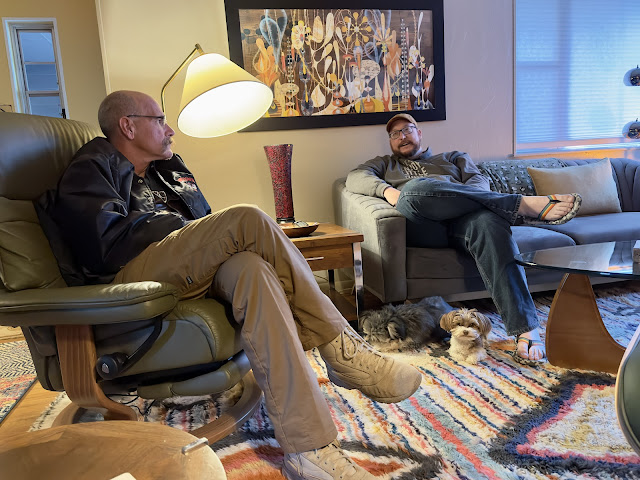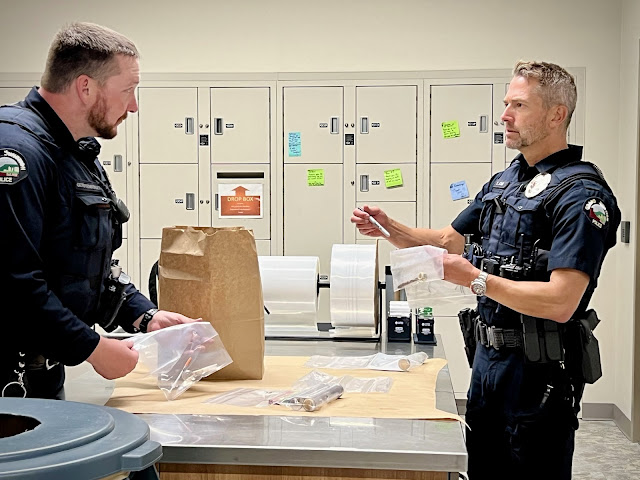Calls for Service - Deaths
There are so many varieties and sheer number of calls officers in my department go to that they typically just blend together and are forgotten, often fading from memory in the same shift. I haven't looked at my call stats but I would imagine I had over 2,500 calls myself last year (our department had roughly 70,000 calls total). Obviously, some stand out and will never be forgotten.
I've joked with a friend before that at least once each week at work I'll see a dead or naked person or both. The naked people calls almost never stand out in my mind, mostly because they have bodies no one needs or wants to see naked. A few weeks ago a lady walked into someone's house, took off her dress, which she had pooped in, dropped it on the floor and proceeded to take a shower in this stranger's house. When officers arrived, the lady, still naked and wet, picked up an object and threatened officers. She ended up experiencing one of my greatest fears in life - being tased (naked, no less!). As humorous at it sounds, it was a sad call. Imagine a mentally altered person entering your house. Sad for the both parties involved. I wasn't part of that call but have been on several similar ones.
Death is the type of call I'm writing about today. Death comes in many forms: natural, suicide, homicide, accidental, reckless, long term chemical abuse, and more. Officers are involved in all forms of death outside of "attended" deaths, and, if warranted, even those may have police involvement. We investigate even presumably obvious natural cause deaths if they are unattended, i.e. died outside of a hospital.
I'm usually fairly detached from the human side of a death call. To some extent you have to be detached or the emotional residue weighs you down over time. Sometimes I get more involved with the family, especially when I'm on scene for an extended period. Reasons for being on scene longer on some of the calls may include a need to figure out a cause of death that isn't readily apparent, a drug overdose which could likely have connections to potential criminal charges related to how the drugs got to the dead person, or just waiting for other entities to arrive - the coroner, victim advocate, etc.
On a recent death call I spent a little over an hour with the deceased's sister and her husband. The sisters were very close over the span of their lifetimes and she was obviously distraught. Initially, a call like this is just like any other. I keep a buffer between my brain and emotions - "It's just my job" I tell myself. Compassion comes to people differently and for different reasons. Spending time with this couple and watching her process the fact she just lost someone she'd been so close to for her entire 60-ish year life was something I could link to feelings I've had when losing people I knew most (or all) of my life. In this situation I try to talk about mundane things and future things. "Do you enjoy yard work?" "Do you have pets?" And then try to tie it in with memories of the lost one. "Tell me about your sister's cat that's hiding in the bedroom." I don't know if it helps but it seems to keep them grounded and distracted.
The other side of death calls are the person who died and no one noticed for days or weeks. It makes me wonder how that person got to that point. Did they just push out loved ones and friends? Did that person lose all their friends and family to death already? What kind of person were they? The only reason they were discovered, sadly, was due to the smell and/or flies gathering on a window. No one noticed the lack of that person in their life. Dying alone and having no one notice your vacancy in the world. Is that a reflection on the person or the world we live in?
One thing the death calls solidified in my mind is the cycle of living and dying. Acceptance of the process makes the end seem more practical than emotional.




Comments
Post a Comment